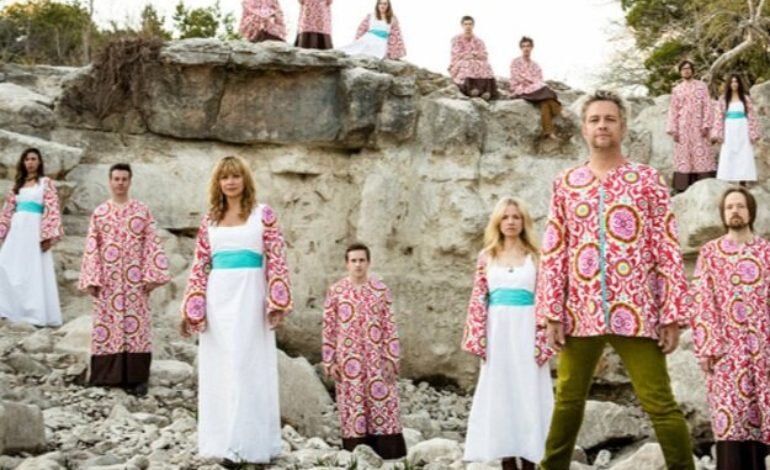Jäh Division Dubs Again

The reissued "Dub Will Tear Us Apart ... Again" tells the story of the Brooklyn-based band in its songs.
Jäh Division’s Dub Will Tear Us Apart … Again tells the story of a band in nine songs. It began in 2003 as a laugh when bassist Brad Truax and synth player Barry London had a funny name and idea—Jäh Division, playing dub versions of Joy Division songs—and found it stayed with them until they realized they had to bring it to life. The superfluous umlaut suggests that we should take the idea as a joke, but that would be wrong. They added it because a Russian Jah Division already existed; they added the umlaut to differentiate the bands.
In fact, they took the idea seriously and enlisted other Williamsburg-based musical friends at a time when the Brooklyn neighborhood was the center of the indie universe, and they worked out dub arrangements of five Joy Division songs that worked. Dub was part of the punk soundtrack in 1976 London, so Peter Hook’s original basslines loan themselves fairly easily to a dub reggae treatment, and Truax and London demonstrate an obvious affection for the classic era of analog dub, where the sonic textures give it its psychedelic quality. The austerity of the originals kept the songs tight, and the dub opened them up just enough.
But it’s pretty clear that dub Joy Division may have given them a reason to assemble a band and record the EP Dub Will Tear Us Apart in 2004, but the concept became a constriction. Rather than veer into novelty and simply dub up the post-punk catalogue in the way that Nouvelle Vague remade the same two-chord wonders as bossa nova the same year, Jäh Division expanded its concept to include dub versions of ska and reggae tracks. Dub Will Tear Us Apart … Again reissues that EP along with other recordings including its dub versions of Desmond Dekker’s “Fu Manchu” and Jackie Mittoo’s “Champion of the Arena.” The tracks sound great, but they’re a step removed from the animating concept and conventional by comparison. The grooves are more natural, but they’re less surprising since the versions make sense. There’s no surprises like the one that comes first with hearing “Transmission” with a deep dub groove, and again when you realize that it makes sense and is cool as a stand-alone track.
Eventually, Truax and London became more interested in playing dub with friends and moved beyond Jäh Division’s source material and began to fold in originals. Two are included, and both show a band more engaged in the trippy sounds than the songs that spawned them. The almost 10 minutes of “Paramount Lobby” nod and bob by pleasantly, but I still haven’t found its core melody, and “Sloppy Homework” lives on the same under-composed continuum, but in a less ambitious form.
While the band moved gradually away from the idea that inspired it, it also slowly cut down the number of live shows as well. It’s tempting to trace everything to Truax and London losing interest in their concept, but that’s too simple. Both were part of experimental rock band Oneida and became involved in a number of projects that crossed musical idioms more fluidly and naturally than Jäh Division. They had to flesh out the lineup with friends including members of Animal Collective, and finding musicians for each gig and rehearsing them likely became work too.
The last part of the story is the reissue itself, which most likely exists because the marketplace. It’s not quite on trend as a historical document because the digital dub tracks collected on 1995’s Macro Dub Infection Vol. 1 or the albums made on Ariwa by Mad Professor are clearer reference points for dubstep and current electronic music than the analog sound of King Tubby, Augustus Pablo, Scientist, Dennis Bovell, and Lee “Scratch” Perry that Jäh Division echoes. But in a streaming world, everything can find an audience, and in a marketplace where vinyl is the physical object of choice, dub makes sense. It’s a sound that really does benefit from the warmth and presence of vinyl, so Dub Will Tear Us Apart … Again can be heard the way it was intended.
Here are versions of “Love Will Tear Us Apart” by the Hot 8 Brass Band and Nouvelle Vague as well as the original version.






